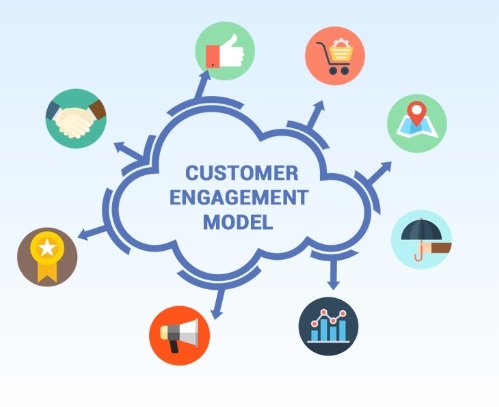Sales engagement is an essential component of the sales process that refers to the level of interaction, communication, and relationship building between a salesperson and a prospect. It’s no secret that sales is a challenging profession, and the success of a sales representative depends on their ability to engage with potential clients and maintain a fruitful relationship with them. Today’s hyper-competitive business environment necessitates that sales representatives must consistently leverage new strategies and methodologies to optimize their sales engagement process. A successful sales engagement process allows for a more meaningful dialogue between the representative and the prospect, resulting in better customer experience.
The core pillars of effective sales engagement include building relationships, delivering value, understanding the customer’s needs, providing personalized service, and tracking results. To ensure that a sales representative is prepared to engage with prospects on a personal level, it is essential to provide them with the resources and tools they require. This includes training on how to use technology such as CRM software, customer intelligence platforms, and AI-driven analytics solutions.
It also requires investing in sales enablement processes that ensure that representatives are equipped with the right information and knowledge about their products, services, and target customers. With the right data and technology in place, sales representatives can develop more meaningful conversations that foster trust and loyalty with potential prospects. Finally, by providing sales engagement resources such as customer insights reports and detailed product presentations, companies can ensure their representatives are able to engage with clients more effectively.
In this article, we will review some of the best practices and strategies to maximize sales engagement and improve the overall sales process to drive revenue and business success.
1. Leverage Personalization
Personalization is the ultimate key to a successful sales engagement. Tailoring conversations, content, and messaging to prospect’s needs and preferences can enhance your ability to connect with them, build trust and establish long-term relationships. Personalization implies that you are attuned to their goals and interests, which in turn enhances the relevance of your offering.
Personalization also helps build a tailored customer experience. By gathering data on customers’ interests, team members can customize the marketing and sales process to ensure that each user receives content and offers that match their specific needs. Additionally, personalizing the buyer journey can help sales reps move a lead through the pipeline faster.
Sales teams should take the time to learn about their prospects and customers. Researching their pain points, areas of interest, and preferences will help them better understand how to create a personalized experience that resonates with each individual. Utilizing CRM tools such as contact management, internal communication systems, or social listening data can provide teams with the necessary insights they need to offer a personal touch.
In addition, sales teams should strive to stay up-to-date on the latest industry trends and developments. By having an understanding of customers’ current needs and challenges, reps can craft tailored messages more effectively and ensure they are offering relevant solutions that fit their prospects’ objectives.
2. Utilize Multi-Channel Engagement
The advent of digital technology has resulted in a proliferation of channels, making it easier to reach customers in a variety of ways. Utilizing multi-channel communication and touchpoints can help maintain consistency and add value to your messaging. Phone calls, emails, webinars, social media, and face-to-face interaction are all viable options to provide a personalized and engaging experience to prospects. It’s important to remember that while technology is an incredible asset, the human element should never be forgotten. Whenever possible, make sure your customer service representatives and sales agents are friendly, knowledgeable and accessible so they can build trust with customers.
At its core, effective customer engagement is about understanding what customers need and adapting your approach to meet their expectations, while ensuring that all channels are integrated into a cohesive strategy. By creating an engaging and customer-centric experience, you can ensure customer satisfaction and loyalty, resulting in increased sales and long-term success for your business.
3. Enhance the Quality of Conversations
It’s essential to elevate the quality of sales conversations beyond a simple pitch or sales talk. A high-quality conversation should be a well-structured and dynamic process that aligns with the customer’s interests, challenges, and decision-making processes. Understanding the prospect’s motivation, end goals and pain points leads to engaged, productive conversations.
4. Focus on Education-Based Selling
Educational content can be a powerful tool for effective sales engagement. With this approach, your team provides relevant and valuable resources to prospects, helping them to make informed decisions about your product or service. This approach takes the customer from merely being a buyer to an educated prospect and ultimately a loyal customer.
5. Leverage Technology and Data
Technology has become an integral part of the sales process, enabling sales representatives to track prospect behavior, automate tasks, and communicate more efficiently. Analyzing data provides a deeper understanding of prospect behavior, needs, and preferences, which helps in predicting and addressing their needs.
Conclusion:
Maximizing sales engagement requires a balance of art and science. Engaging customers with an effective, personalized approach can lead to tangible outcomes such as more conversions, stronger relationships, and long-term loyalty. Implementing these best practices, ranging from personalization to education-based selling and leveraging technology, helps to deliver outstanding sales engagement and drive significant business success. Utilizing the right sales engagement strategies can help to build and deepen relationships with customers, creating a lasting connection that will drive your business forward. With the right approach, your organization’s sales process can be optimized for maximum efficiency and success.
By understanding customer needs, leveraging technology, and focusing on personalization, you can deliver a powerful sales engagement experience that drives results. Sales engagement requires an intentional, comprehensive strategy that considers the customer’s journey and puts their needs first. With the right approach, you can maximize sales engagement, drive conversions and create lasting relationships with your customers.
Read Other Stories Loved by Our Users – The Benefits of Working with Experts in Amazon PPC Management










































